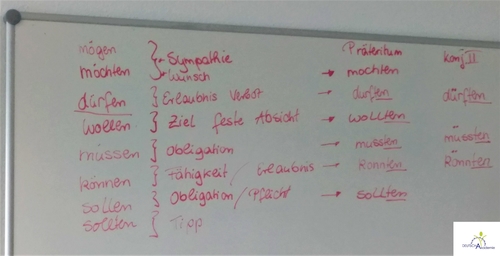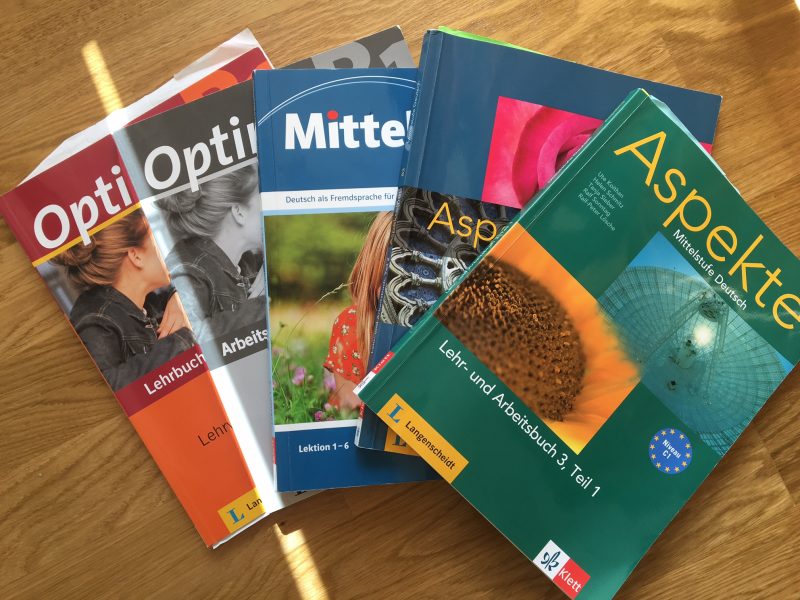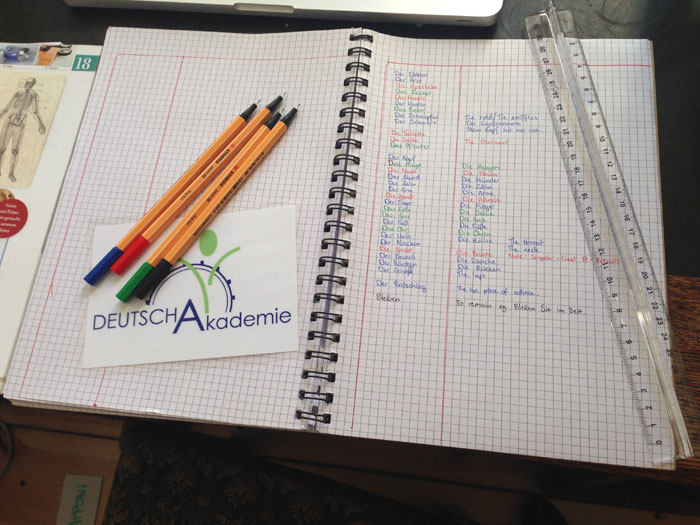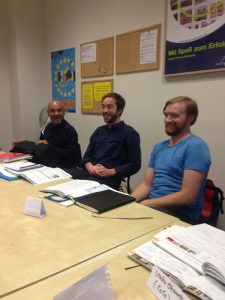Today in class we learned prepositions, specifically which prepositions are indicative of dative, and which are akkusative. This was very, VERY useful. I have been struggling to recognize how to distinguish between dative and akkusative, and only this morning realized that it’s actually not so hard! Now I just need to memorize the millions of unpredictable articles attributed for god-knows-what reason to every single German word, and to learn the various conjugations. I am not so great at math either, but I have a 33% wahrscheinlichkeit of first getting the nominative article correct, and then divide that by 3 again to cover dative or akkusative, I am guaranteed an 11% chance of getting the article correct just by guessing (I believe this, although again, math is really not my strength)! If I apply the skills I learned in class today, and my prior knowledge, I can probably increase my chances hahahaha.
Anyways, that’s why I’m taking classes!
I also wanted to describe my experience trying to learn German by podcast, which, as I mentioned, I had been doing while in Canada. So, learning by podcast was actually a lot of fun, but not the most effective technique to learn how to SPEAK German. Positive aspects were that I was listening every day to German idioms, to phrases, to pronunciation, and to a range of vocabulary. I heard how words were used in the context of simple stories, that were also entertaining. As a language introduction and a personal activity I highly recommend it. Grammar-wise, however, learning by podcast wasn’t so effective. I find that learning in a classroom, taking notes, being in a context where it is encouraged to speak and safe to make mistakes has really accelerated my learning. While I learn very well by ear, learning by reading and writing has been really effective. Classroom-based learning is also more useful because there is an established structure and order to what I’m learning, as well as exercises to aid in the application and repetition of what is taught. So, in the end I would recommend both, since my vocabulary is much more extensive from the podcasts, but without the course I would be like a handful of beads without a string to turn them into a necklace (the course is the string, for those of you rolling your eyes at my awkward metaphor).















